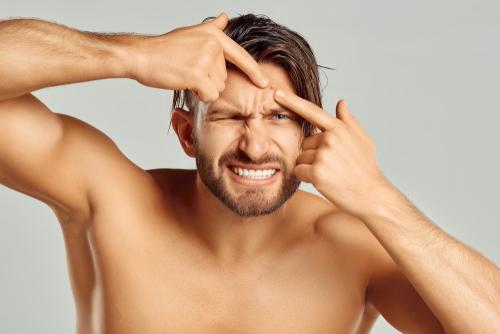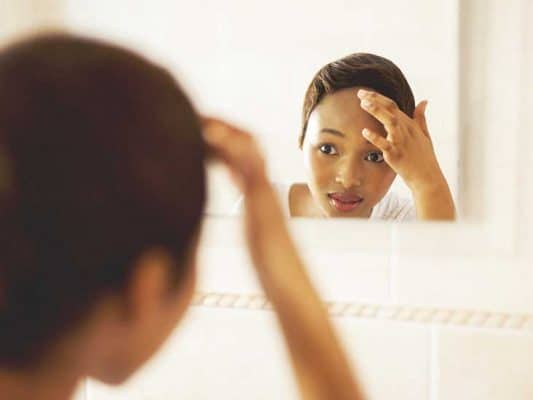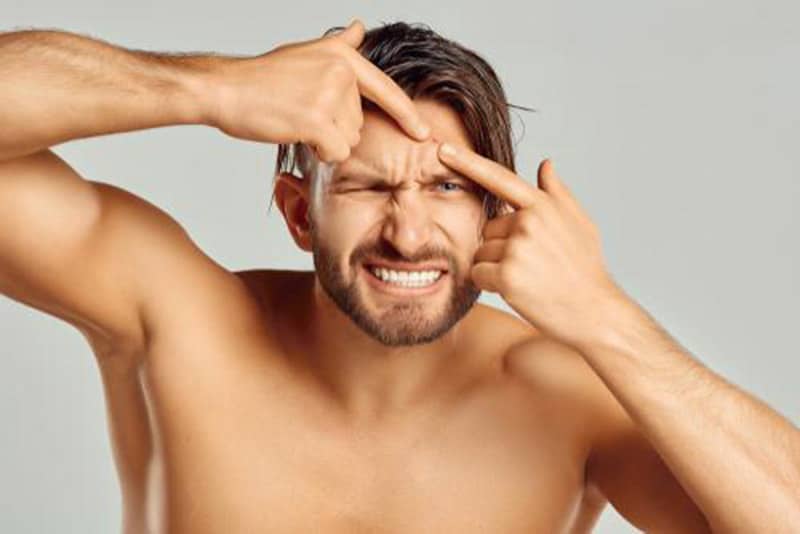When you are asking ‘What causes forehead acne?’ you have probably heard about face mapping. Face mapping has been known for centuries as an effective acne treatment and uses a combination of acupuncture, Chinese medicine, and physical therapy.

Face mapping is simply a process of identifying the main problem areas on your skin and using this information to identify which part of your face is causing the problem. Specifically, when you look at a face map, you will see an outline of the nose, chin, forehead, or eyelids. It will be made up of lines that go down one side of the face, with two lines running from the center of one eye all the way to the corner of the mouth. Face mapping focuses on identifying these areas and treating them.
Acupuncture is a widely accepted treatment used in Chinese medicine. Acupuncture targets specific parts of the body. In this case, it works by stimulating certain pressure points located in the body to treat specific conditions. Acupuncture has been used to treat acne since ancient times.
In addition to acupuncture, a variety of herbal treatments, vitamins, minerals, and supplements can be used to help strengthen the skin, improve circulation, and reduce inflammation. Many Chinese medicines, including milk thistle and black cohosh, are used as supplements as well to help prevent acne outbreaks from forming.
When you treat your facial skin, it helps to remove or reduce the number of pimples that you have. This helps to eliminate the need to use a topical treatment for your blemishes. However, if your face has pimples already, a good moisturizer is usually recommended to help keep the pores from being clogged up and to keep bacteria from forming.

Facial massage is another common treatment used in treating acne. Massaging the face can reduce inflammation, increase circulation, and improve circulation. These two factors are especially important to preventing blackheads and whiteheads from forming.
Facial irrigation removes excess oil from the skin, making it more supple and able to heal itself. By working on the skin’s surface, acne becomes less visible. Other than drying out the face, facial irrigation can also eliminate the need for exfoliation.
There are several treatment options to help prevent acne, but none are foolproof. So you’ll want to take the time to consult your doctor before trying any. For most cases, there is no permanent cure for facial acne, but there are many ways to help reduce the number of blemishes that you have.
A healthy diet is important in fighting acne. Eating plenty of fruits and vegetables can help the skin stay supple and youthful. It can also help prevent acne from forming because it prevents the build-up of toxins in the blood. Foods that are high in antioxidants are good choices for reducing acne breakouts.
The skin around your eyes is very sensitive. Avoid using harsh, abrasive, and irritating soaps and cleansers around the eyes, especially if you’re a person who tends to sweat a lot. Eye creams are usually not suitable to use on the eye area of your skin because they will irritate the skin further. Sunscreening should also be a part of your daily routine.
A good acne treatment that doesn’t leave your skin irritated and dry is an important part of your arsenal against your blemishes. Skin creams should contain natural ingredients that are gentle on the skin without stripping it of its natural moisture. Avoid those that contain salicylic acid, parabens, mineral oil, or alcohol, because these can irritate the skin even more.
Living a healthy lifestyle will help fight acne, but a healthy diet is just as important. If you smoke, try to quit or cut back as much as possible. Smoking can lead to unhealthy levels of stress in your body, which can lead to acne breakouts.
Another aspect of living a healthy lifestyle is to avoid too much stress. Stress leads to increased blood flow to the face, which is known to cause inflammation, and the oil glands can produce more oil in response. Drinking plenty of water can help reduce and even eliminate stress, but keep in mind that too much can make acne even worse.

